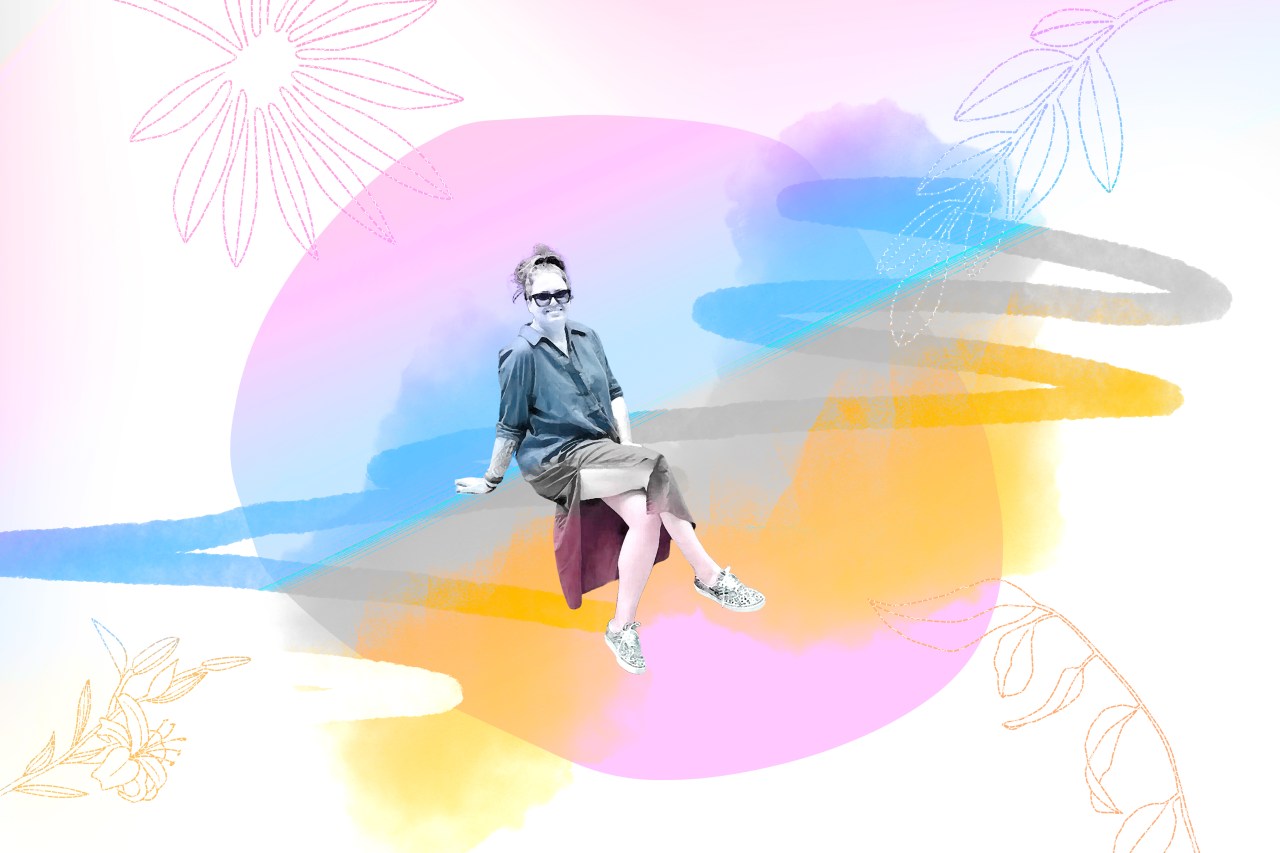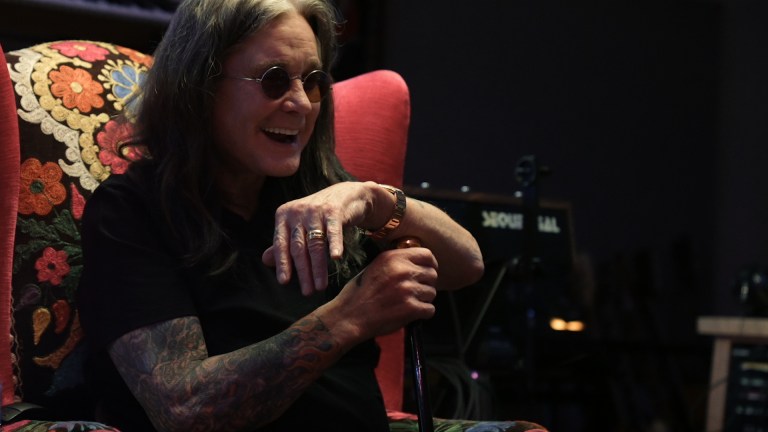
Being Diagnosed With HIV Saved My Life. Yes, You Read That Right.
By Maya Viecili
It was a dark and cold February when my life was bound to take a turn. The previous year I had been having episodes of fever that would result in nothing. I was losing my hair as if I was having chemo and losing weight every day. My mental health was also collapsing. None of those facts called my attention to the obvious. Something was killing me, and I hadn’t noticed.
Several times I visited doctors and health stations to investigate the origin of my fevers and weakness, the doctors would only order a plain blood test, listen to my lungs, and tell me that “your blood work looks normal, probably there’s a flu coming.” It was a Friday morning in the middle of a cold and snowy winter when I fell very ill, and could barely move, breathe and communicate, and my husband decided to take me to emergency care. We drove away whilst I was trying to understand what was going on and babbling random questions about the weather and what would we have for dinner. My mind was tempestuous but still quiet. The loose ends weren’t connecting. I couldn’t have a complete thought.
I remember flashes from a doctor listening to my lungs and telling my husband it was sounding normal, and my husband nervously raising his voice demanding some sort of deeper examination because clearly, I wasn’t doing well. I tried to answer some questions but would give up before even making any sense. The doctor finally sent me to the hospital, ordered an x-ray, and told my husband to repeat everything he had told them to the doctors and nurses at the next care provider.
At the hospital, they ran hundreds of tests on me. We went to several different rooms and spoke to different doctors and one of them asked if I had ever had an STI test done, I said “yes,” she asked if it was OK for them to test me again, I said, “yes, please, test me for everything.”
After around 14 hours of testing, they sent us home. My phone rang in the same evening, around 11 pm, my husband answered and brought it to me. It was one of the doctors asking me to go back to the hospital straight away. My level of numbness was so deep that I had the chill to tell her I had no physical or mental condition to get back there at that very moment but asked if it was OK to go first thing the following morning. She dithered, but agreed, saying it wouldn’t be her who would see me the next morning, but that wouldn’t be
an issue.
The next early morning, my husband and I entered the premises of the hospital and we were clearly being expected. They knew my name, offered me water, and asked us to wait for someone to call me. I was very weak and could barely breathe. It didn’t take long until a nurse came outside a door, and asked to come inside, “alone.”
I looked at my husband and moved toward the room, where other people all in medical uniforms stared at me. They checked my pulse, checked my blood pressure, and asked me to enter through another door, an annex from inside the room. I saw two chairs facing one another, a gurney, and a table. I was told to sit on one of those chairs and wait.
A doctor sat in front of me and asked several questions, and while I tried to mumble some very short answers and say yes or no with my head she would watch me carefully, touch my hands, and my knee, to give me some kind of support. She then held my hands, gave me a staring look, and said: “we tested you for HIV, and it was positive.”
I drowned. I couldn’t hear anything, I felt as if I was being swallowed by the ocean. I lost ground. When I was able to catch the air and blow a sound I said “NO! It’s impossible! It’s wrong!”
She explained to me that the protocol was to take a second test to confirm the first one in case of a positive result, but because of all the opportunistic infections I already had at that time, I not only had HIV, but I was in the late stages of AIDS, and that they needed to admit me into the hospital to start treatment immediately. I could barely react.
A few days of brain fog followed that day, but I remember the doctors saying that my condition was extremely critical and that they didn’t know if I was going to survive. They told me to communicate with my family, and, somehow, be ready.
The first person I told was my dad, then my sisters, and I told my mom I had pneumonia. I didn’t know how she was going to react. I got all the support I needed from them, my husband, and the doctors and nurses at the hospital.
While in there, my only tasks were to rest and eat. I was looking calm but my mind was constantly conceptualizing my new reality. I had time to think. I put things in perspective. I went through moments of self-stigma. I questioned my ability to make choices, my life, my future, everything.
In less than 2 weeks I was already feeling much stronger, and the doctors were looking a lot more optimistic, until the day they told me my body was responding beautifully to the medication, and I wasn’t at imminent risk of dying anymore. I would survive.
That was the moment that changed everything.
I made the commitment to myself that I would do everything within my reach to recover completely, and that was: taking my medication daily for the rest of my days, eating well, exercising, and sleeping well.
And so I did.
I stayed a total of 28 days in the hospital, and since day one, I am 100% adherent to my medication. I love what I call “my life pills” and take them happily. I cherish every moment of my life and I became friends with my diagnosis. Studying and educating myself about HIV and AIDS turned out to be a passion. But I was still keeping my HIV status a secret. It seemed like a dirty secret I had to hide. But it didn’t feel that way, at all. I was never ashamed of having HIV. I never made the infection easy, and I learned that pretty much ANYONE can be infected with HIV.
I felt I needed to do something about all the misinformation and misconceptions around this subject building up the stigma, that is, in fact, the worst thing about HIV. So I spoke to my family and decided to come public about my status. This was, unquestionably, the best decision I have ever made. I can say today that not only the HIV+ diagnosis saved my life — because otherwise, I’d have died of AIDS, but it also brought my life great purpose. I started advocating for HIV and AIDS awareness and had the chance of being connected with people from all over the globe. I offer support and can see people come from a very dark place soon after diagnosis to a much brighter perspective of future life.
I have always been very positive. There will always be unexpected problems to be dealt with in life. We can’t avoid that. But we can choose HOW we are going to handle them. And I do it turning my pains into something good. I face my problems with an open mind and heart.
Living with HIV nowadays is a chronic condition. Treatment is so effective that suppresses the virus to a level where we can live as if we don’t have it. All we have to do is take our medication daily, as prescribed, and take good care of ourselves. It’s a healthy context, that provides plain quality of life.
I am grateful for my life and everything that happened to me.
Today my existence is much more meaningful, and I love living it.











